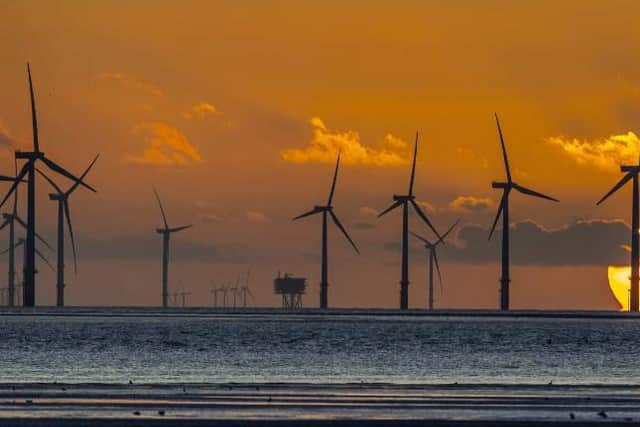Yorkshire families urged to take action as new climate change report is 'code red for humanity'
The stark assessment from the UN’s Intergovernmental Panel on Climate Change (IPCC) states there must be “deep” and immediate reduction in greenhouse gas emissions to stabilise rising temperatures and avert the most dangerous consequences of climate change.
Countries around the world have been aiming to limit global warming to 1.5°C (compared to pre-industrial levels) since they signed the Paris Agreement, but projections in the report show the global temperature is expected to exceed that threshold over the next 20 years and surpass 2°C before the end of the century.
Advertisement
Hide AdAdvertisement
Hide AdThe authors of the report also say warming is already “affecting many weather and climate extremes in every region across the globe”.


UN secretary general Antonio Guterres said the report is “code red for humanity” and urged world leaders to step up their efforts to cut emissions ahead of the 26th UN Climate Change Conference of the Parties (COP26) in Glasgow in November.
“The alarm bells are deafening, and the evidence is irrefutable: greenhouse gas emissions from fossil fuel burning and deforestation are choking our planet and putting billions of people at immediate risk,” he said.
“Global heating is affecting every region on Earth, with many of the changes becoming irreversible. The internationally agreed threshold of 1.5°C is perilously close.”
Advertisement
Hide AdAdvertisement
Hide AdProfessor Andy Gouldson, director of the Yorkshire and Humber Climate Commission, said people in the region are already feeling the effects of climate change, as severe floods and wildfires have become more frequent, and everyone should look to reduce their own emissions and call on businesses and elected officials to take action.
“It’s really abundantly apparent that now is the time to act and unless we act, things are going to get an awful lot worse,” he said.
“We’ve got very limited opportunities now to stop ourselves going above that 1.5°C. Once we do get above that, there are all these feedback loops that lead to further warming.
“The report says that it’s still possible to do that, but only just. If we want to avoid crossing that threshold, we’ve got to act really quickly, at scale and with great ambition, in the very near future.”
Advertisement
Hide AdAdvertisement
Hide AdPrime Minister Boris Johnson, whose Government is due to publish its strategy on cutting UK emissions to zero overall by 2050 this autumn, said it was clear the next decade was going to be pivotal to securing the future of the planet.
He said: “We know what must be done to limit global warming – consign coal to history and shift to clean energy sources, protect nature and provide climate finance for countries on the frontline.
“The UK is leading the way, decarbonising our economy faster than any country in the G20 over the last two decades.
“I hope today’s IPCC report will be a wake-up call for the world to take action now, before we meet in Glasgow in November for the critical Cop26 summit.”
Advertisement
Hide AdAdvertisement
Hide AdThe report, which is the first instalment of the IPCC’s Sixth Assessment Report, was compiled by dozens of climate scientists from around the world and signed off by 195 Governments earlier this month.